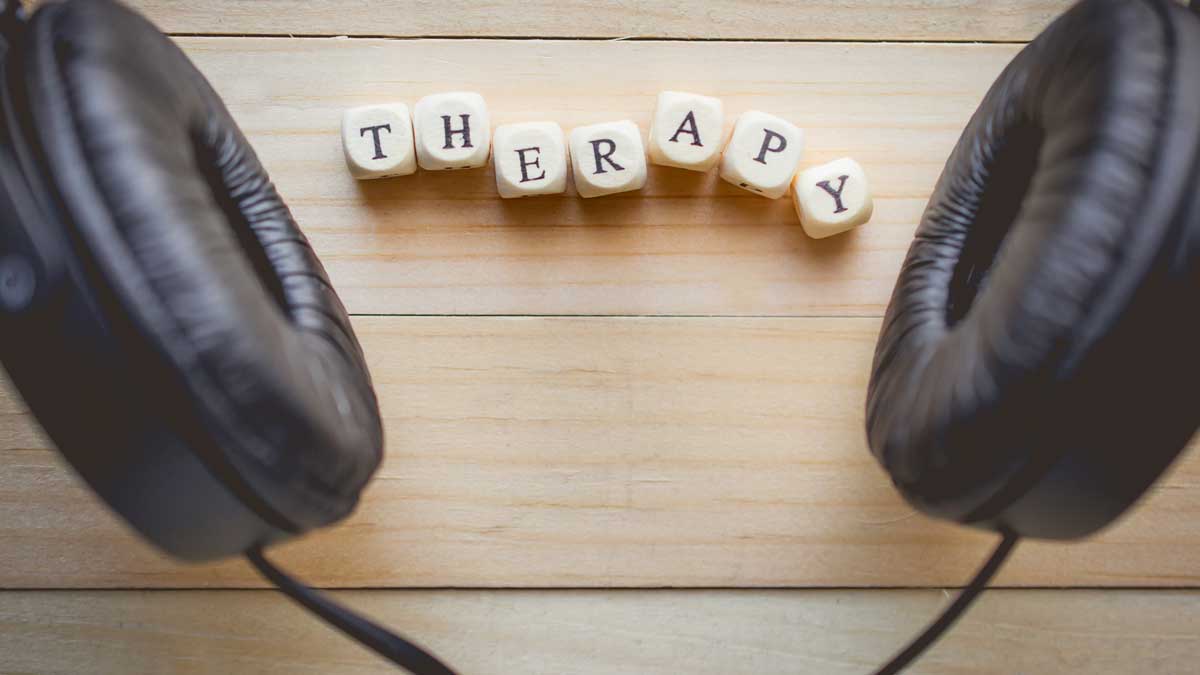In the fast-paced and often stressful world we live in, the need for mental well-being and self-care is more important than ever. Amidst various therapeutic practices, classical music has emerged as a powerful tool for promoting mental health and emotional well-being. With its intricate melodies, soothing harmonies, and evocative compositions, classical music has the potential to provide a profound therapeutic experience. In this article, we delve into the therapeutic benefits of classical music and explore how it can positively impact our mental health.
Stress Reduction and Relaxation
Classical music has a unique ability to induce a state of relaxation and tranquillity. Its serene and gentle nature can help reduce stress levels, lower heart rate, and promote a sense of calm. Listening to classical pieces with slow tempos and melodic structures can trigger the release of endorphins, our brain’s natural “feel-good” chemicals, leading to a heightened state of relaxation and an overall sense of well-being.
One example of a classical piece known for its stress-reducing and calming qualities is Johann Pachelbel’s “Canon in D.” This beautifully melodic composition features a repetitive and soothing structure that creates a meditative and peaceful atmosphere. The gentle strings, layered harmonies, and steady progression of the piece contribute to its ability to evoke a sense of tranquillity and alleviate stress. Listening to “Canon in D” can provide a moment of respite and relaxation, allowing the mind to unwind and find solace in its harmonious embrace.
By immersing ourselves in the serene melodies and harmonies of classical music, we can tap into its therapeutic benefits, finding solace and inner peace amidst the chaos of everyday life. Whether it’s the delicate piano melodies of Claude Debussy’s “Clair de Lune” or the ethereal beauty of Erik Satie’s “Gymnopédie No. 1,” the power of classical music to reduce stress and promote relaxation is a testament to its timeless allure and its ability to soothe the soul. So, take a moment, find a quiet space, and let the transformative sounds of classical music wash over you, bringing calmness, serenity, and a renewed sense of well-being.
Mood Enhancement and Emotional Regulation

One of the remarkable qualities of classical music is its capacity to evoke a wide range of emotions. Whether it’s the dramatic swells of a symphony or the delicate melodies of a piano sonata, classical compositions have the power to elicit deep emotional responses. Listening to classical music can help uplift our mood, provide solace during difficult times, and facilitate emotional expression. It can serve as a means of catharsis, allowing us to connect with and process our own emotions more effectively.
One example of a classical piece known for its mood-enhancing and emotionally evocative qualities is Ludwig van Beethoven’s “Moonlight Sonata.” This renowned composition is characterised by its poignant and introspective melodies, creating an atmosphere of contemplation and reflection. The melancholic beauty of the piece can resonate with feelings of longing, introspection, or even sorrow, providing an outlet for emotional release. By immersing ourselves in the haunting melodies of “Moonlight Sonata,” we can experience a sense of emotional catharsis, finding solace and understanding in the music’s expressive power.
Classical music offers a vast repertoire of compositions that cater to various emotional states. From the triumphant and jubilant sounds of Wolfgang Amadeus Mozart’s “Symphony No. 40” to the serene and peaceful ambiance of Claude Debussy’s “Clair de Lune,” each piece holds the potential to enhance our mood and regulate our emotions. By actively engaging with classical music, we can tap into its transformative power, allowing it to guide us through a diverse range of emotional experiences.
Cognitive Stimulation and Focus

The complexity and intricacy of classical music engage various cognitive processes in our brains. Research suggests that listening to classical compositions can enhance cognitive functions such as memory, attention, and problem-solving skills. The interplay of different musical elements, such as melody, rhythm, and harmony, stimulates our neural networks, promoting neuroplasticity and improving overall cognitive performance. Engaging with classical music can also enhance focus and concentration, making it a valuable tool for studying or engaging in deep work.
One example of a classical piece known for its cognitive stimulating qualities is Johann Sebastian Bach’s “Brandenburg Concerto No. 3.” This masterpiece showcases intricate and precise musical craftsmanship, with its contrapuntal melodies and interwoven instrumental voices. The complex structure of the piece challenges our cognitive abilities, requiring attentive listening and analytical thinking to follow the intricate musical patterns. By immersing ourselves in the intricate tapestry of “Brandenburg Concerto No. 3,” we can enhance our cognitive skills, sharpen our focus, and engage in the intricate world of musical intricacies.
Classical music offers a vast repertoire of compositions that cater to cognitive stimulation and focus. From the mathematical precision of Bach’s fugues to the intellectual depth of Ludwig van Beethoven’s symphonies, each piece presents a unique opportunity to engage our cognitive faculties. By actively listening and immersing ourselves in these compositions, we exercise our cognitive processes, fostering mental agility and expanding our capacity for critical thinking.
So, whether you need to enhance your focus while studying, improve your memory retention, or engage in cognitively demanding tasks, classical music can be a powerful ally. Harness the intellectual allure of the genre as you explore its vast repertoire and allow the harmonies and complexities of classical compositions to stimulate your mind, enrich your cognitive abilities, and unlock new realms of mental acuity.
Mindfulness and Mind-Body Connection

Immersing ourselves in the rich tapestry of classical music can be a form of mindfulness practice. By fully experiencing the music in the present moment, we cultivate a heightened sense of awareness and connection to our emotions and surroundings. The intricate melodies and harmonies can serve as anchors for our attention, allowing us to cultivate a state of mindfulness and develop a stronger mind-body connection. This can be particularly beneficial for reducing anxiety, promoting self-reflection, and fostering a sense of inner calm.
One example of a classical piece that beautifully demonstrates mindfulness and fosters a mind-body connection is “Clair de Lune” by Claude Debussy. This enchanting piano composition invites us to immerse ourselves in its ethereal beauty, evoking a serene and introspective atmosphere. As we listen attentively to the delicate interplay of melodies and harmonies, we can become fully absorbed in the present moment, allowing the music to guide our thoughts and emotions. The gentle and flowing nature of “Clair de Lune” creates a tranquil space for introspection and self-reflection, promoting a deep sense of mindfulness and a profound connection between our mind and body.
Engaging with such contemplative pieces as “Clair de Lune” offers an opportunity to cultivate a meditative state of mind, where we can observe our thoughts and emotions with clarity and without judgement. By embracing the music’s expressive nuances and allowing it to guide our inner journey, we foster a deeper connection to ourselves and the world around us. This mindfulness practice through classical music provides a sanctuary of tranquillity and self-discovery, allowing us to cultivate inner peace and balance in our daily lives.
Social Connection and Community
Music, be it classical or otherwise, has the power to bring people together and create a sense of community. Attending concerts, participating in music appreciation groups, or playing a musical instrument in an ensemble can foster social connections, reduce feelings of loneliness, and provide a sense of belonging. When we gather with others who share a love for music, we become part of a community united by a shared passion. The collective experience of listening to or performing music creates a unique bond, as the melodies and rhythms become a common language that transcends barriers and fosters connections.
Engaging in musical activities within a community setting offers opportunities for collaboration and cooperation. Playing an instrument in an orchestra or singing in a choir requires synchronisation and communication with fellow musicians, promoting teamwork and interpersonal skills. The process of creating music together allows for shared accomplishments, mutual support, and a sense of collective achievement. Whether it’s the camaraderie felt among ensemble members during rehearsals or the shared exhilaration of a live concert audience, the experience of music as a communal activity enhances our sense of social connection and well-being.
Moreover, music events often provide spaces for people to interact and engage in dialogue, deepening connections and expanding social networks. From jam sessions and open mic nights to music education programs and workshops, music brings individuals from diverse backgrounds together, fostering a sense of inclusivity and unity. The shared appreciation for the beauty and emotional power of music creates a welcoming environment where people can connect, forge friendships, and celebrate the transformative nature of music.
In this way, music serves as a catalyst for building social bonds and nurturing a sense of community. It brings together individuals with different perspectives and backgrounds, creating a space where we can share our love for the art form and connect with others who appreciate its beauty. Through the power of music, we find solace in the melodies that unite us and discover the joy of experiencing something truly extraordinary together.
Conclusion
Classical music possesses remarkable therapeutic qualities that can positively impact our mental health and emotional well-being. From stress reduction and relaxation to mood enhancement and cognitive stimulation, classical compositions have the potential to promote mental well-being in profound ways.
Incorporating classical music into our daily lives, whether through active listening or engaging in music-making, can be a valuable self-care practice that nourishes our minds and souls. So, let us embrace the therapeutic benefits of classical music and allow its timeless melodies to enhance our mental health journey, bringing solace, inspiration, and inner harmony.



